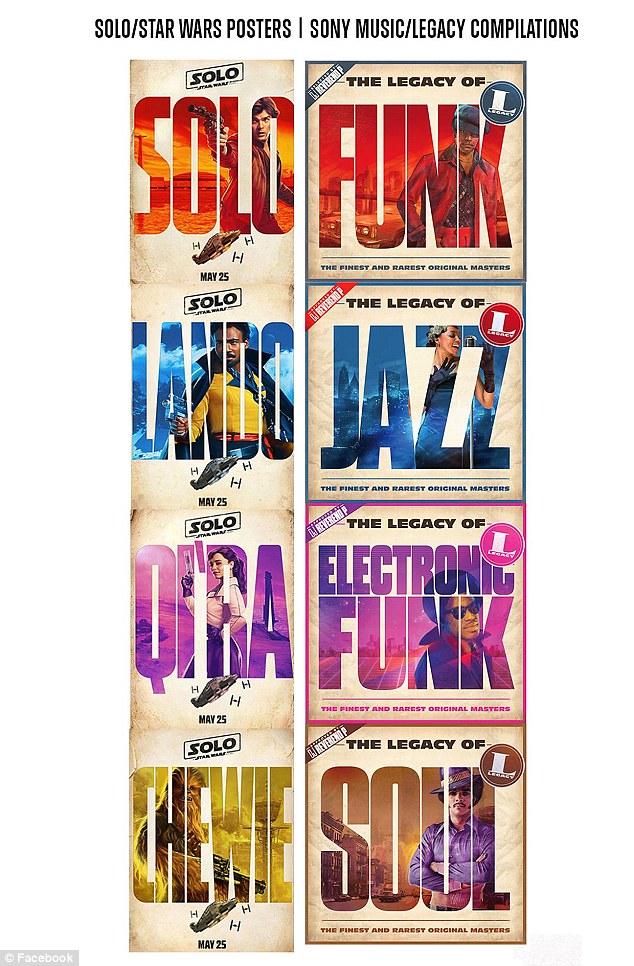(1) LICENSE TO THRILL. Steven H Silver spotted an unusual collectible in traffic the other day —
I was unaware that Illinois issued such event specific license plate until I saw this one today (June 6). The text around Superman indicates it is for the 40th Annual Superman Festival in Metropolis, Illinois from June 7-10. On the right you can see that the plate expires on June 10, 2018.
(2) SATISFYING SPACE OPERA. Abigail Nussbaum delivers insightful and fascinating sff analysis in “A Political History of the Future: Space Opera by Catherynne M. Valente”, at Lawyers, Guns & Money.
To which the answer is, because talking about Space Opera gives me an opportunity to point out a glaring lacuna in almost all the works we’ve discussed so far—the way that nearly every one of them leaves out the centrality of culture, and particularly popular culture, in shaping a society and reflecting its preoccupations.
When I say “culture”, I’m talking about several different things, each integral to the believability of any invented world. Culture can mean shared cultural touchstones, classic and modern, that give people a common frame of reference, like humming a pop song or quoting the Simpsons. It can mean characters who are artists, professional or amateur. It could refer to the way that culture can become a political battleground, as we were discussing just a few days ago in response to the news that conservatives want their own version of SNL. Or it could be a discussion of material culture—fashion, design, architecture—and how it allows people to express themselves in even the most mundane aspects of their lives.
It’s very rare, however, to see science fiction try to engage with any of these aspects of culture. Even as it strives to create fully-realized worlds, art—high and low, functional and abstract, popular and obscure, ridiculous and serious—tends to be absent from them. So are artists—try to remember the last time you encountered a character in a science fiction or fantasy story who had an artistic side, even just as a hobby. Even worse, few characters in SFF stories have any kind of cultural touchstones.
(3) KILL YOUR DARLINGS. Delilah S. Dawson tells what she thinks is the real meaning of that traditional writerly advice “kill your darlings.” The thread starts here —
https://twitter.com/DelilahSDawson/status/1005851162988482560
(4) IN THE BEGINNING. The International Costuming Guild presents its research into what fans wore to the masquerade at the Second Worldcon (1940) — “Convention Costuming History: The Pre-WWII Years – Pt. III”.
The earliest Worldcon masquerades were more like informal costume contests, with several well known authors of the time participating. The costumes worn were a mix of original designs, interpretations of literary characters and what would come to be known as media recreations. 1940 – Chicon I
Following the novelty of Ackerman’s and Douglas’ costumed appearance the previous year, a “Science Fiction Masquerade Party” was featured as part of the convention programming.(1) By Forrest Ackerman’s count, there were 25 people in costume there. The co-host masters of ceremonies were fans and writers Jack Speer and Milton Rothman. Judging from the accounts of the party, the occasion was informal – there was no stage, but there were one or two skits, including one by Ackerman and “Morojo” (Douglas) wearing their outfits from the previous year.
There were several reports of who was there for the first official costumed event. Among that first group of convention costuming contestants were…
(5) ICG IN PASSING. The International Costuming Guild’s in memoriam video, presented at Costume-Con 36 (2018) to recognize those in the community lost in the previous year, is posted on YouTube.
(6) WITH CAT IN HAND. Yoon Ha Lee will be doing an Ask Me Anything on June 12.
https://twitter.com/motomaratai/status/1004158546345447425
(7) THIEVES LIKE US. A recent movie premiere inspires B&N Sci-Fi & Fantasy Blog’s listicle “12 Fantasy Heist Novels”.
There are genre tropes, and then there are those archetypes that are mainstays of not just science fiction and fantasy, but of popular culture in general. One of the best examples is the character of the Gentleman Thief (who doesn’t always have to be a gentleman). These rogues are witty, engaging, and will rob you blind with a rakish wink and a smile. You can’t help but be charmed by them. From Robin Hood to Danny Ocean, the character is a permanent favorite in books and on film….
The Holver Alley Crew, by Marshall Ryan Maresca
Maresca’s interconnected Maradaine books (multiple series examining life in the same fantasy city) are a real treat. The latest series is about the Holver Alley crew, a ragtag group of formerly retired thieves are forced to return to a life of crime when their new, respectable shop burns down. When they learn the fire was no accident, they are forced to take desperate measures. All of the Maradaine books are a treat, but this one really stands out because of the especially strong characters. In fine Oceans tradition, Asti and Verci are both brothers and ringleaders, and must assemble a skilled crew to pull of a job to rob a gambling house that took everything from them.
(8) HAWKING OBSEQUIES. Are any of you trying to get in? “Stephen Hawking: Ballot opens for Westminster Abbey service”.
The public is being offered the chance to attend a service of thanksgiving for Professor Stephen Hawking, who died in March aged 76.
It will take place in Westminster Abbey on 15 June and up to 1,000 tickets are available in a ballot.
During the service, the scientist’s ashes will be interred between Sir Isaac Newton and Charles Darwin.
His daughter, Lucy Hawking, said she wanted to give some of her father’s admirers the chance to remember him.
(9) LAST DAYS. Christopher Stasheff’s son, Edward posted the following to his Facebook page on June 9:
My father, Christopher Stasheff, is currently in hospice and expected to die from Parkinson’s Disease within the next two weeks, quite possibly this week. If anyone would like to say goodbye to him, post it as a response here, and I’ll read it to him the next time I see him (I visit him in the nursing home daily). Thanks.
The most recent reports are suggesting that he may only have a day or so left.
Update: His son reports Stasheff died this evening.
My father Christopher Stasheff died at 6:45 PM on June 10th, 2018, surrounded by his wife and two of his children. The other two were able to phone in and say goodbye before he passed. He is survived by hundreds of his students and uncountable fans, and his legacy will live on in all the lives he touched.
(10) TODAY’S BIRTHDAY
- Born June 10, 1952 – Kage Baker
(11) VOLLEYED AND THUNDERED. Edmonton’s Hugo Book Club just put out a new blog post, “Is that The Canon in your pocket or are you just happy to see me?”, in which they muse about literary awards and their relation to posterity and questions of enduring value. Is science fiction the new Western Canon?
It is worth noting that Harold Bloom’s 1993 list of The Western Canon included only two works that are traditionally categorized as science fiction: Ursula Le Guin’s Hugo Award winner The Left Hand of Darkness and George Orwell’s 1984.
But of Bloom’s list, I would argue the majority of the works cited are less relevant to the broad public – and to a concept of cultural literacy – than the recent Hugo Award winners and popular works of science fiction.
For example, references and allusions to Wolfram von Eschenbach’s 13th century poem Parzival are lost on the broader public, while Ernest Cline’s Ready Player One protagonist Parzival is familiar to many.
(12) ICE NINE. Galactic Journey’s Victoria Lucas has just read the new Vonnegut release – in 1963: “[June 10, 1963] Foma: Lies, Damned Lies, and Statistics (Kurt Vonnegut, Jr.’s Cat’s Cradle)”
When a friend lent Kurt Vonnegut Jr.’s newest novel, Cat’s Cradle to me, I thought, “Oh, I know this book!” because I saw, as I flipped through it, the “ice-nine” and “Bokonon” I’d heard people buzzing so much about. So I was glad to read it and understand the phenomenon.
But that’s where my joy ended. Vonnegut is a fine writer. His style is idiosyncratic, askew; this is a novel novel. But no one would accuse him of being optimistic or hopeful about the human future. No Pollyanna he….
(13) BBC RADIO STAR TREK DOCUMENTARY. BBC Radio 4 has just re-broadcast “Star Trek – The Undiscovered Future”, first aired December 2017. It’s available to listen to online right now.
How far have we voyaged towards Star Trek’s vision of the future and what of it is likely to be fulfilled or remain undiscovered in the next 50 years?
Kevin Fong presents archive material of the likes of Leonard Nimoy (Spock) and Nichelle Nichols (Lieutenant Uhura) talking about the inception and filming of the original Star Trek series, and their thoughts about Roddenberry’s vision of the future and its impact in the United States at the time.
For example, Nichols relates how she had a chance encounter with Martin Luther King the day after she had told Roddenberry that she intended to leave Star Trek after the first series. King told her he was her number fan and almost demanded that she didn’t give up the role of Uhura, because she was an uniquely empowering role model on American television at the time.
For a perspective from today, Kevin also talks to George Takei who played Mr Sulu. Takei laments the ethnically divisive politics of the United States in 2016.
He meets Charles Bolden – the first African American to both command a shuttle mission and lead NASA as its chief administrator. In the age of the International Space Station, he compares himself to the ‘Admiral of Star Fleet’. But the former astronaut also talks about the anger he first felt in 1994 when he was asked to fly the first Russian cosmonaut ever to board an American space shuttle.
Kevin also talk to cultural broadcaster and Star Trek fan Samira Ahmed about the sexual and racial politics of the Original series.
(14) ST:D SEASON TWO. Comedian and new Star Trek: Discovery cast member Tig Notaro opened her set on The Late Show with Stephen Colbert poking fun at her inability to understand any of the tech talk from her Trek dialog. See “‘Star Trek: Discovery’: Tig Notaro Talks Technobabble” at Comicbook.com.
Tig Notaro is one of the new additions to the cast of Star Trek: Discovery in the show’s second season and while she’s excited to be a part of the Star Trek universe she doesn’t exactly speak the language.
Notaro was a guest on The Late Show with Stephen Colbert to promote her new comedy special Happy to be Here. She greeted Colbert by saying his theater was “like a room full of pleasant subspace particles wrapped in a tachyon field of good vibes.”
The comment is obviously a reference to her role on Discovery, though she admits “I have no idea what I’m saying on that show…I can’t even picture what I’m talking about.”
She revealed that her character is human and that she plays Commander Jet Reno, a name she got to choose for herself. As for how she got the job, “They just asked if I wanted to do it” she says.
(15) BAD WITH NUMBERS? Deadline interviewed the president of Marvel Studios: “Kevin Feige Talks Marvel’s Success, Female Directors, ‘Infinity War II’ & How He’s ‘Bad With Numbers’”.
More female directors on Marvel pics: Captain Marvel is the first Marvel title to have a female director at the helm Anna Boden (who is co-helming with Ryan Fleck. And having more female directors behind his superhero pics is a trend he plans to maintain, “I cannot promise that (the next) 20 Marvel movies will have female directors but a heck of a lot of them will,” he said in response to an audience member’s question. The Marvel boss mentioned that agencies are sending more female directors than men for Marvel directing jobs.
On the $1.3 billion success of Black Panther, Feige said that Marvel “wanted to destroy the myth that black movies don’t work well around the world,” and being at Disney with its platinum marketing department allowed the comic book studio to swing for the fences.
“The budget for Black Panther was bigger than Doctor Strange, Ant-Man, Captain America: Civil War, and you can’t do that without the support and encouragement from the leaders of the company,” he said.
Feige also applauded Black Panther director Ryan Coogler’s championing his diverse below-the-line team in Hannah Beachler as production designer, Ruth Carter’s costumes, and DP Rachel Morrison. Their resumes, like Marvel’s directors, didn’t scream tentpole experience, but Feige is grateful he heard them pitch rather than rely on his regular team.
“We can’t imagine the movie without them, and the future movies we hope to make with them,” he said.
(16) JURASSIC LARK. In Parade, “Chris Pratt and Bryce Dallas Howard Talk Dinosaurs, Parenting and Friendship”.
After their wildly successful first dino film in 2015, the pair reunited last year to film much of Fallen Kingdom on the Kualoa Ranch in Oahu, Hawaii. But even surrounded by tropical paradise, they faced more than a few challenges on camera, from filming in a chlorinated pool that fried Pratt’s hair and skin to riding in a zero-gravity gyrosphere that made Howard nauseous. And Pratt had to do some awkward face-offs with a velociraptor that wasn’t really there—until the special-effects department created it. He acts out how he’d say to the air in front of him, “Get back, get back . . .” and then “Whoa!” as he’d throw himself on the ground. The camera crew, watching on monitors nearby, “didn’t want to say how stupid it looked!”
(17) SCARIEST MOVIE. The Washington Post’s Monica Castillo, in “The story behind ‘Hereditary,’ the Toni Collette horror movie that scared the bejesus out of Sundance”, interviews Hereditary director Ari Aster who, “in his first feature, marries the horror and melodrama genres into an unnerving movie about grief.”
Aster said he deliberately amped up the drama in the film slowly. “I’m not affected by anything in a film unless I’m invested in the people at the center of it,” he said. “I wanted to take my time and immerse people in this family’s life and their dynamic, which is quite complicated. I just wanted to make a film in the tradition of the horror films I grew up loving, like ‘Rosemary’s Baby,’ ‘Don’t Look Now’ and ‘The Innocents.’ Films that take their time are very much rooted in character.”
Setting also plays an important role in the creepiness in “Hereditary.” The family’s luxury cabin in the woods has the right dark corners and haunted attics to make it feel like a trap where its inhabitants are left to slowly die. Annie’s miniature houses become a motif. “The miniatures just struck me as a potent metaphor for the family’s situation,” Aster said. “They have no agency, and they’re revealed over the course of the movie to be like dolls in a dollhouse, being manipulated by these outside forces.”
(18) SPONGEBOB TONY. In “How ‘SpongeBob SquarePants’ invaded our brains”, Washington Post writer Sonia Rao interviews the cast and creators of SpongeBob SquarePants: The Broadway Musical, which is up for 12 Tonys as best musical tonight and is making a lot of Millennials very happy.
Tom Kenny never thought SpongeBob SquarePants, a character he originated on the children’s program almost 20 years ago, would one day end up on Broadway. Why would he have? Parents clamp their hands over their ears whenever they hear SpongeBob’s helium voice, let alone his nasal laugh. The anthropomorphized sponge is no Hugh Jackman.
And yet, “SpongeBob SquarePants: The Broadway Musical” is up for 12 Tonys on Sunday, tied with “Mean Girls” for the most nominations. Its resonance with serious theatergoers is surprising until you consider that even as adults, those of us who watched the series can’t shake its omnipresent songs, references and memes. Somehow, it became a cultural earworm.
[Thanks to Martin Morse Wooster, Mike Kennedy, JJ, Chip Hitchcock, Lexica, Olav Rokne, John King Tarpinian, Cat Eldridge, Carl Slaughter, Jonathan Cowie, Steven H Silver, and Andrew Porter for some of these stories. Title credit goes to File 770 contributing editor of the day Niall McAuley.]






